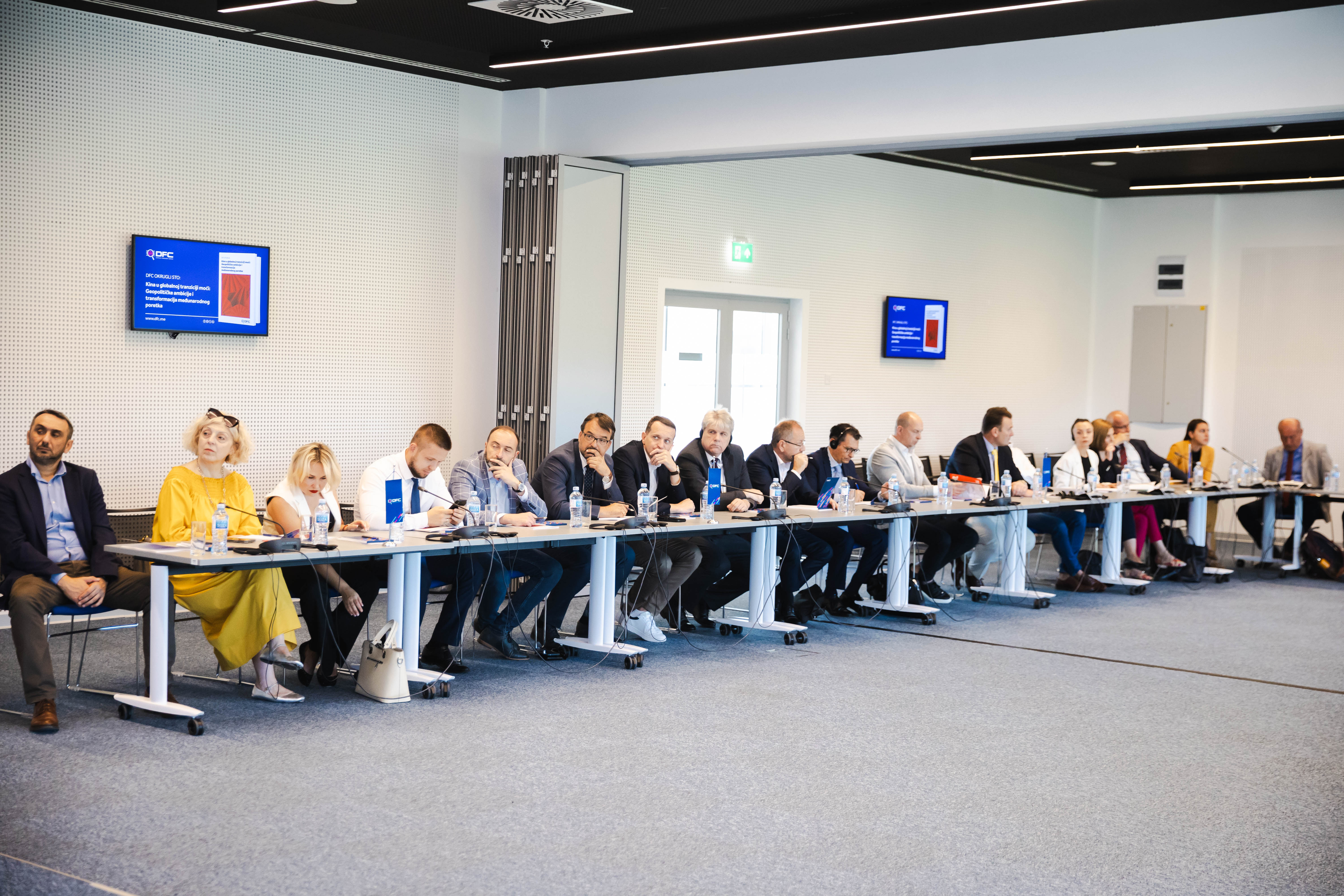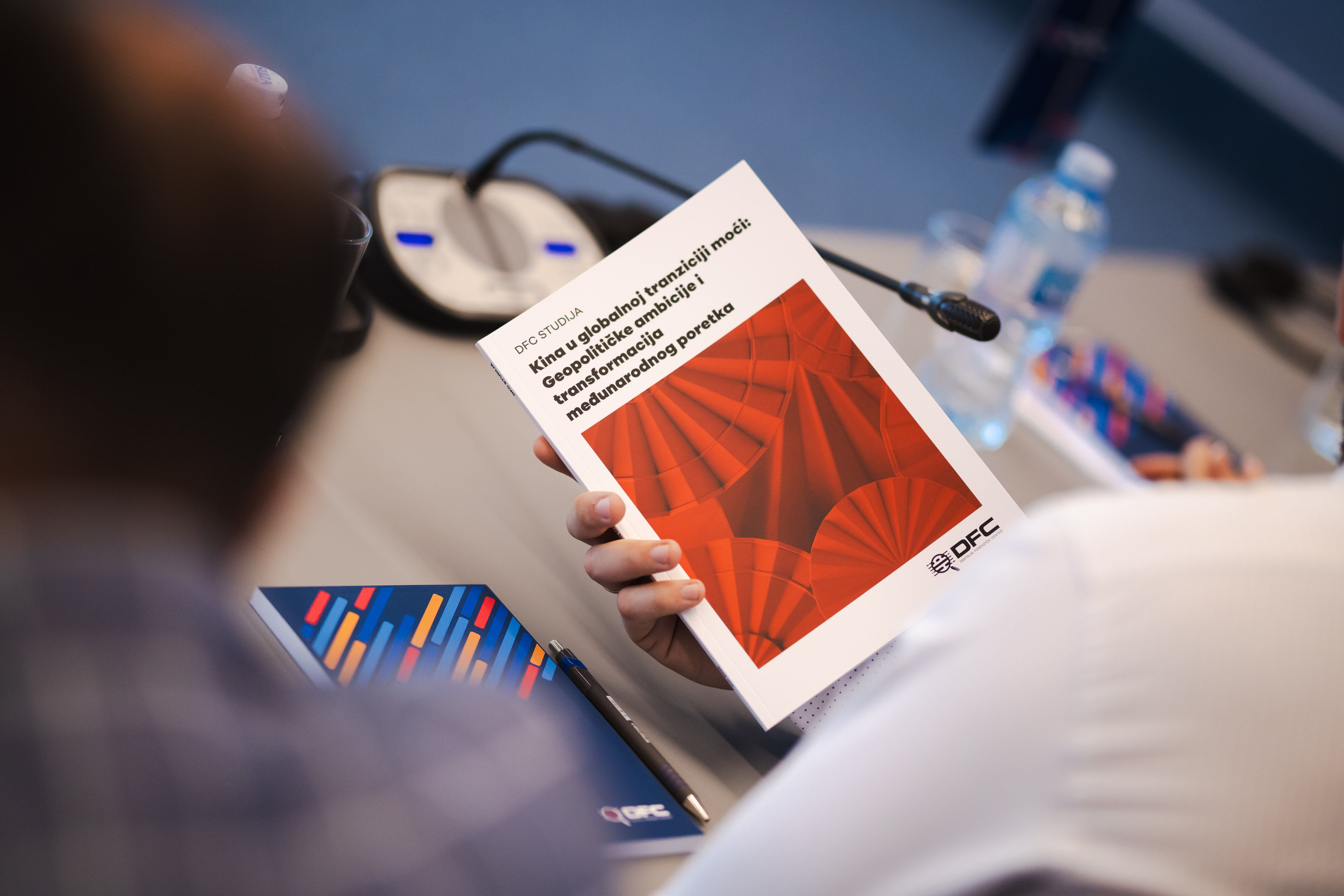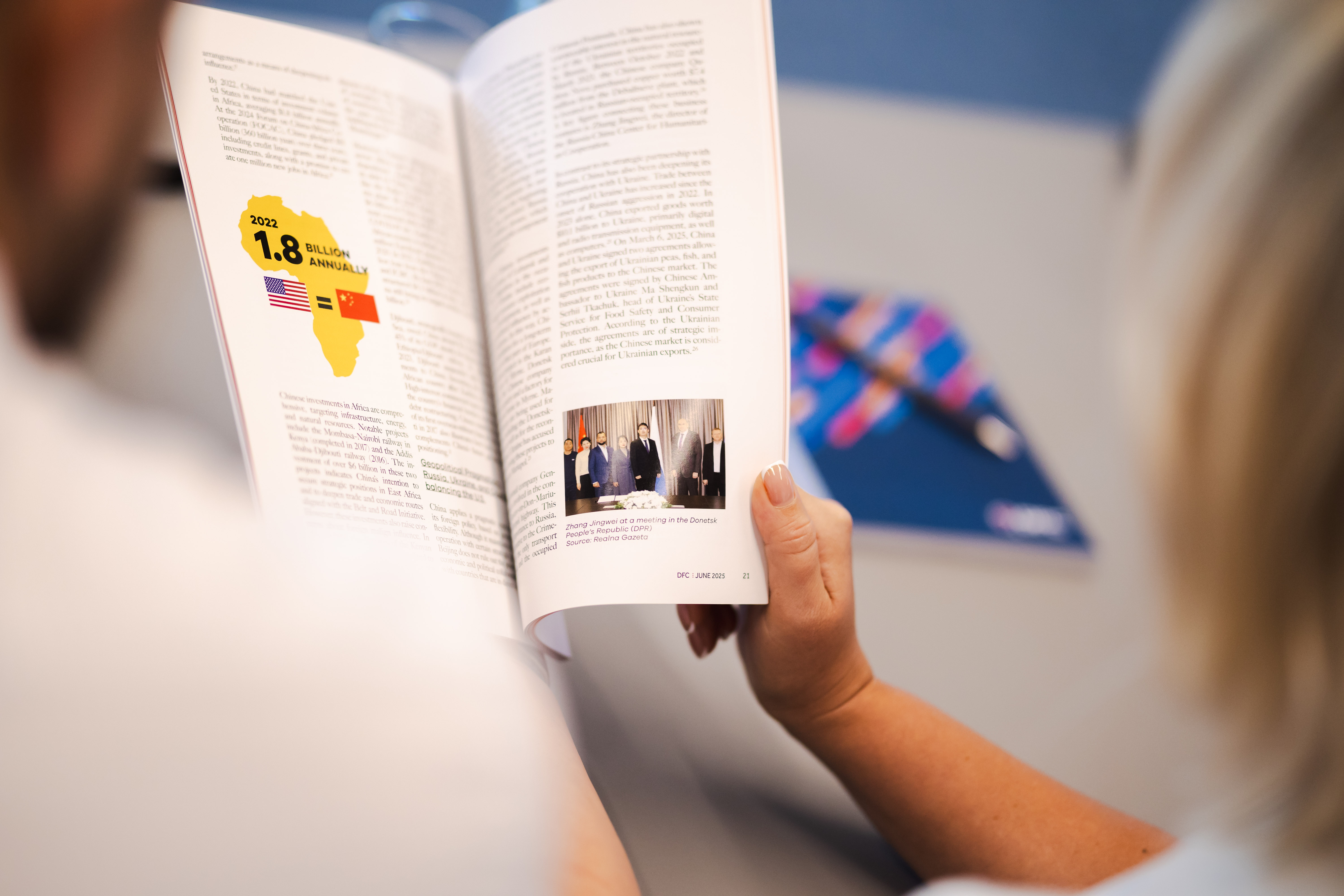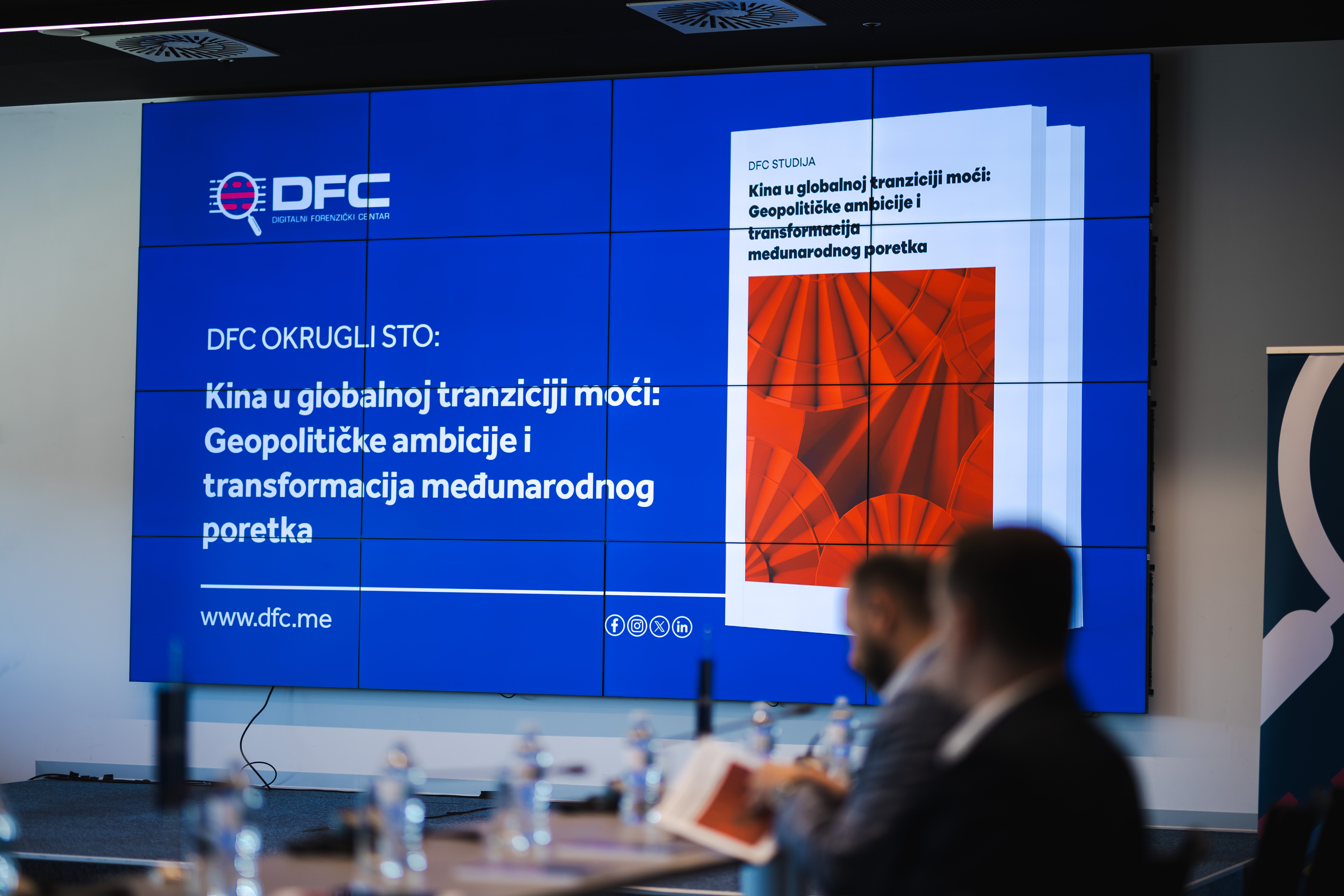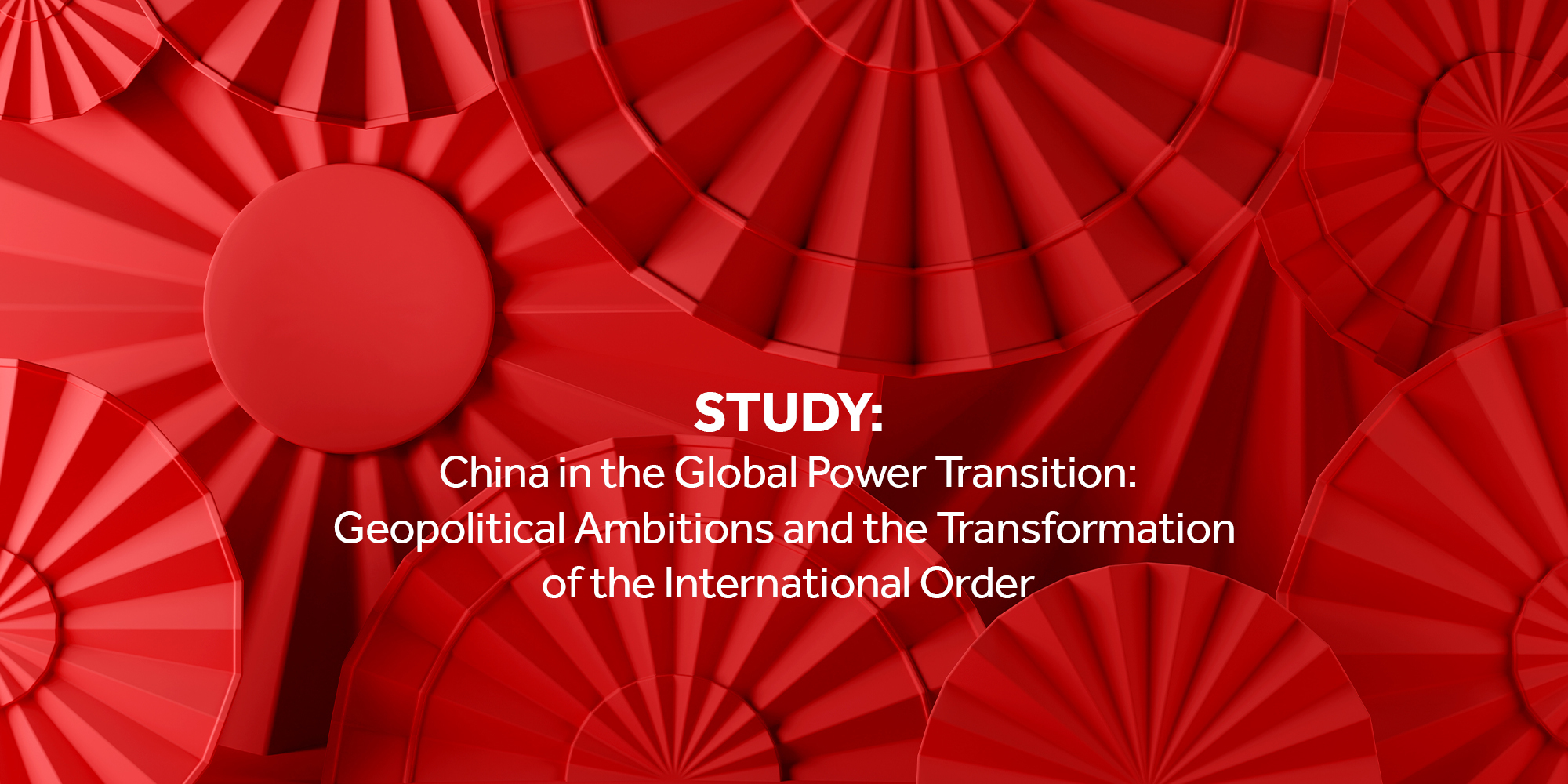The new study by the Digital Forensic Center (DFC), titled “China in the Global Power Transition: Geopolitical Ambitions and Transformation of the International Order,” presented on June 3, 2025, analyzes China’s role in contemporary geopolitical processes, including: Chinese geopolitical strategies and positioning during the war in Ukraine, instruments of soft power such as education, media, and social networks, China’s growing presence in the Western Balkans, and its relations with the U.S., EU, and other global actors.
DFC analyst Marko Banović, presenting the study, stated that China’s ambition to become a dominant center of power is no longer based solely on economic expansion, but on a broad spectrum of influence tools that include security, technological, cultural, and informational domains. He said that China uses a combination of hard and soft power, adapting strategies to local socio-political contexts with consistent mechanisms of action. Unlike the EU, China exploits institutional weakness by offering infrastructure projects and political support without conditions for reforms.
Banović emphasized that China applies a pragmatic approach in its foreign policy, based on geostrategic flexibility. Although it closely cooperates with certain strategic partners, Beijing does not exclude the possibility of economic and political cooperation with countries that are in direct conflict or rivalry with them. One example is China’s relationship with both Russia and Ukraine. China blames NATO for the war in Ukraine and often criticizes the West for imposing sanctions on Russia. Reducing the overall influence of the U.S. and creating a new world order based on multipolarity is China’s strategic goal, with BRICS being one of the key tools of multipolarism.
China’s hybrid activities are based on infiltration into key sectors, targeting vulnerable individuals, using civil society and digital platforms, and manipulating information. Cyber activities linked to Chinese intelligence services target corporations, governments, and IT companies. Over the past two decades, China has positioned itself as a global technological rival to the West, investing vast resources in the development of artificial intelligence, telecommunications, and surveillance systems.
Banović stated that China uses media as a tool in its propaganda strategy with the goal of reshaping international reporting. “The primary task of its tactic is to counter the Western media space by portraying China in an affirmative light and limiting critical narratives.”
Relations between the People’s Republic of China and the European Union, which were initially predominantly economic, have become increasingly complex due to contemporary geopolitical changes. Although China and the EU are significant trade partners, their bilateral interactions are burdened with numerous challenges.
Serbia is one of the key strongholds of Chinese influence in Europe, Banović said, adding that since the rise to power of the Serbian Progressive Party (SNS) and Aleksandar Vučić in 2012, the relations between the two countries have been continuously strengthened. He also noted that Chinese engagement is growing in Bosnia and Herzegovina, especially in the entity Republika Srpska.
There are good relations between Montenegro and China that are continuously being upgraded, both bilaterally and through mechanisms such as the China-CEEC cooperation and the Belt and Road Initiative, Banović said. He emphasized that unlike Russia’s approach, China’s interests in Montenegro are not primarily politically driven, at least not in terms of direct interference in the country’s internal affairs or foreign policy orientation.
“China will continue to strengthen its influence in the Western Balkans to facilitate access to the EU single market. A potential distancing of Montenegro from the EU would allow both China and Russia to consolidate the socio-political positions they have established over the past decade,” the study states.
The study also provides specific recommendations: the development of a comprehensive national strategy to counter hybrid threats and foreign malign influence; increased institutional transparency in the area of Chinese investments and interstate arrangements; support for independent and professional journalism and appropriate media monitoring of the Chinese narrative; introduction of a legal framework for official visits to Chinese institutions; more active involvement of civil society and academia in overseeing Chinese presence in Montenegro; the definition of clear security standards for Chinese technologies; and recalibration of Western presence and competitiveness in the Balkans.
You can find the complete study at the following LINK.

